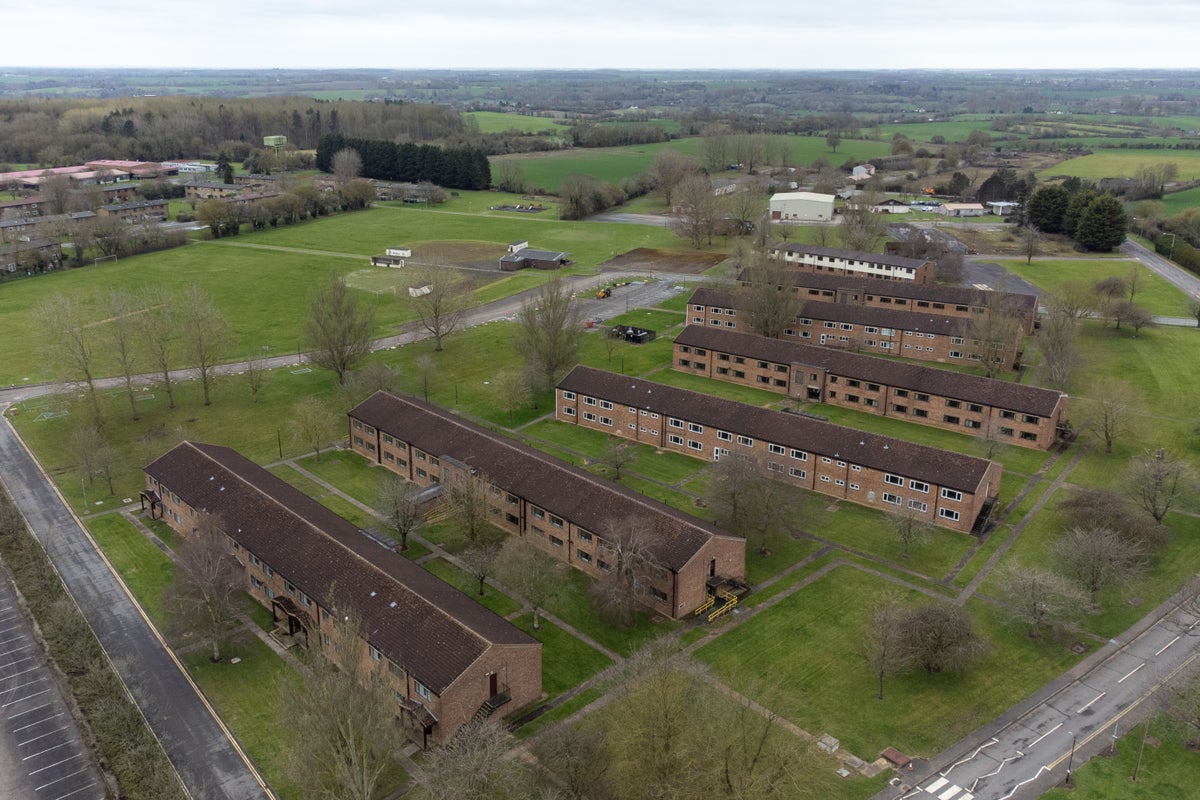
A council has lost its bid to secure a High Court injunction blocking the Government’s plans to use a redundant RAF airfield in Essex to house asylum seekers.
Braintree District Council brought legal action over the proposed use of Wethersfield Airfield to accommodate up to 1,700 male asylum seekers for up to 180 days each.
The Ministry of Defence (MoD)-owned land was one of the sites identified when immigration minister Robert Jenrick unveiled plans last month to house asylum seekers in disused military bases to reduce reliance on hotels.
The local authority’s lawyers asked a judge to grant it an injunction preventing the use of the 6.5-hectare site, arguing proposals would breach planning control.
The council rejected the Government’s argument that the need to accommodate more asylum seekers is an “emergency” under planning law.
The Home Office and MoD opposed the injunction, with Government lawyers asking for the case to be thrown out.
Giving a ruling in London on Friday, Mr Justice Waksman concluded that the court did not have the legal power to grant the council’s application, and therefore ruled in favour of the Government.
The judge said the Home Office estimated there were 109,000 asylum seekers – the highest level on record – in need of accommodation and support as of the end of last month, including 48,000 being housed in hotels, at a total cost of £6.2 million a day.
The court heard on Wednesday that Home Office operational plans are based on scenarios of up to 56,000 small boat arrivals in 2023, which would take the number of people needing accommodation and support to between 120,000 and 140,000.
Paul Brown KC, for the Home Office, told the court a number of factors had contributed to issues around accommodating asylum seekers, including the impact of the Covid pandemic, the Afghanistan relocation scheme and war in Ukraine.
The barrister argued that the current situation amounted to an “emergency” as it risked people being left homeless and destitute, and the Government would be in breach of its duties to asylum seekers.
The judge said it was not necessary for him to decide on the points raised about the emergency situation, but gave his conclusions on them in any event, finding that the large numbers of asylum seekers in need of accommodation did constitute an emergency.
He said the provision of accommodation to asylum seekers was not an “option” but a “statutory obligation” on the Home Secretary.
“The emergency here is the situation gives rise to the real risk of homelessness,” he said, adding that the plans “plainly intend to avoid and mitigate homelessness on the part of asylum seekers”.
We are grateful to the judge for granting the council’s application for an appeal and we will now be reflecting on any next steps— Braintree District Council spokesperson
“I consider that there is a qualifying emergency here,” he added.
“I am quite satisfied for myself that the development here is covered by class Q and I would have so found had I had jurisdiction,” the judge said.
The judge also granted the council permission to appeal against his ruling, saying issues in the case should be considered by the Court of Appeal.
Ordering an expedited one-day hearing, he said it was “important for both local authorities and central government to know where they stand from a higher court as soon as possible”.
“I consider that this is one of those cases where there is a compelling reason for an appeal,” he said.
A spokesperson for Braintree District Council said: “We remain of the view that Wethersfield Airfield is an unsuitable site, given the lack of capacity in local services, its isolated location, the size of the site, and the fact that the scale of the development proposed could have a significant impact upon the local community, and want to thank all those who have worked with us, including local residents, community groups, parish councils and MPs, up until this point.
“We are grateful to the judge for granting the council’s application for an appeal and we will now be reflecting on any next steps.
“If plans do go ahead, we will continue to work closely with our partners to press the Home Office to share more detailed information about their plans with the local community and identify any actions required so that we can support any asylum seekers accommodated as well as minimising any impacts on our local communities.”
Welcoming the ruling, a Home Office spokesperson later said: “Delivering accommodation on surplus military sites will provide cheaper and more suitable accommodation for those arriving in small boats whilst helping to reduce the use of costly hotels.
“Not only are accommodation sites more affordable for taxpayers, but they are also more manageable and orderly for communities, thanks to healthcare and catering facilities on site, 24/7 security and the purpose built basic, safe and secure accommodation they provide.”







